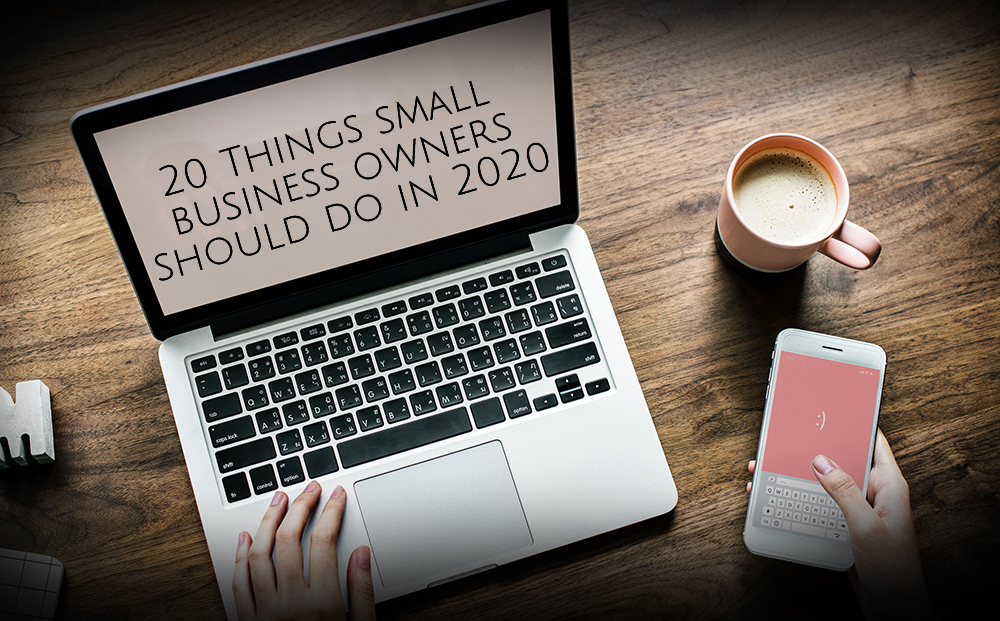The Competitive Edge I January 2020 I Issue 1
- Unsubscribe from unnecessary email lists. Having less clutter in your inbox will save you time and allow you to focus more on tasks at hand. Visit Unroll.me to unsubscribe in seconds.
- Update passwords on all of your accounts every 2 months. You can never be too safe or too protected. Use a site such as passwordsgenerator.net to help you find strong passwords.
- If you don’t have a website, get one ASAP. Almost everyone does research online before making a purchase or hiring a company. If you don’t have an online presence, you’re less likely to make the sale or get the business.
- Keep up with website maintenance. WordPress, plugins, and themes are updated regularly. If you don’t keep up with those updates, your site can run into compatibility issues and break down. Remember, your website is a living thing and needs regular care.
- Purchase a SSL certificate. When installed on a server, a SSL certificate activates the padlock and the https protocol. This allows secure connections from a web server to a browser. Also, search engines now require websites to load on a secure server or else they are penalized. Avoid this by having your site load on a secure server.
- Update the PHP version on your hosting server to the most up-to-date version. Outdated versions are no longer supported, and your site can run into compatibility issues if it is not running the most up to date PHP version.
- Add a firewall and malware scan and removal to your hosting account. A firewall will protect your site from hackers. Malware scan and removal services can save your site from being destroyed. Being proactive is the key to keeping your website safe.
- Create regular backups of your website and database files. You never know when disaster can hit. Backing up your site regularly means peace of mind. Most hosting companies can do this for you, or you can chose to use a plugin like Updraft Plus to make backups of your website.
- Make sure your website is mobile-friendly, since, let’s be honest, how many of us view a website on a desktop anymore? A mobile-friendly site is an absolute necessity for every business owner.
- Focus on local SEO. Optimize your business for local search to attract the right customers. Get your business listed in business directories, tag your location in your social media postings, etc.
- Stand out on Google for FREE with a Google My Business profile and connect with more customers. Learn more at www.google.com/business
- Invest time in email marketing. Email marketing will allow you to build relationships with prospective customers, leads, as well as your current and past customers because it gives you a chance to speak to them directly through their inbox!
- Collect positive reviews either through traditional methods or online to build the credibility of your business.
- Define your niche. Often times, small business owners try to do it all. Don’t. Figure out the one (or two) things that you’re really GREAT at and focus on that.
- Build your brand. A strong brand is important for a small business. Branding improves the recognition of your business, it creates trust, it helps you stand out from the competition in advertising, and more. Your brand is much more than your company name and a logo. Your brand is the personality of your business and the way your audience feels about your business.
- Blog. You don’t have to be a great writer to blog. Just write in your own voice and use simple and digestible information to connect with your audience.
- Know your competitors. Small business owners sometimes live in a bubble, focusing solely on their own business. To grow, you can’t do that. Know what your competitors are doing, follow them online, check out their websites, see what is working for them and what’s not. Check out this article from thrivehive.com: https://thrivehive.com/5-things-you-should-know-about-your-competitors/
- Meet with a business coach. A business coach will help you develop strategies for growing your business, as well as keep you on track to the commitments made during the past coaching sessions. They’ll help you figure out your goals and develop a path to achieve them.
- Review your social media strategy. Start by setting realistic social marketing goals. Research the audience you’re trying to target. Check out your competition. Create engaging content. Keep track of your results and optimize as needed.
- Give back to your community. It’s so important for business owners to give back to the communities that they are a part of. Donate to local organizations. Volunteer at local events. Being connected to your community is a great way to establish good will while promoting your products or services.



